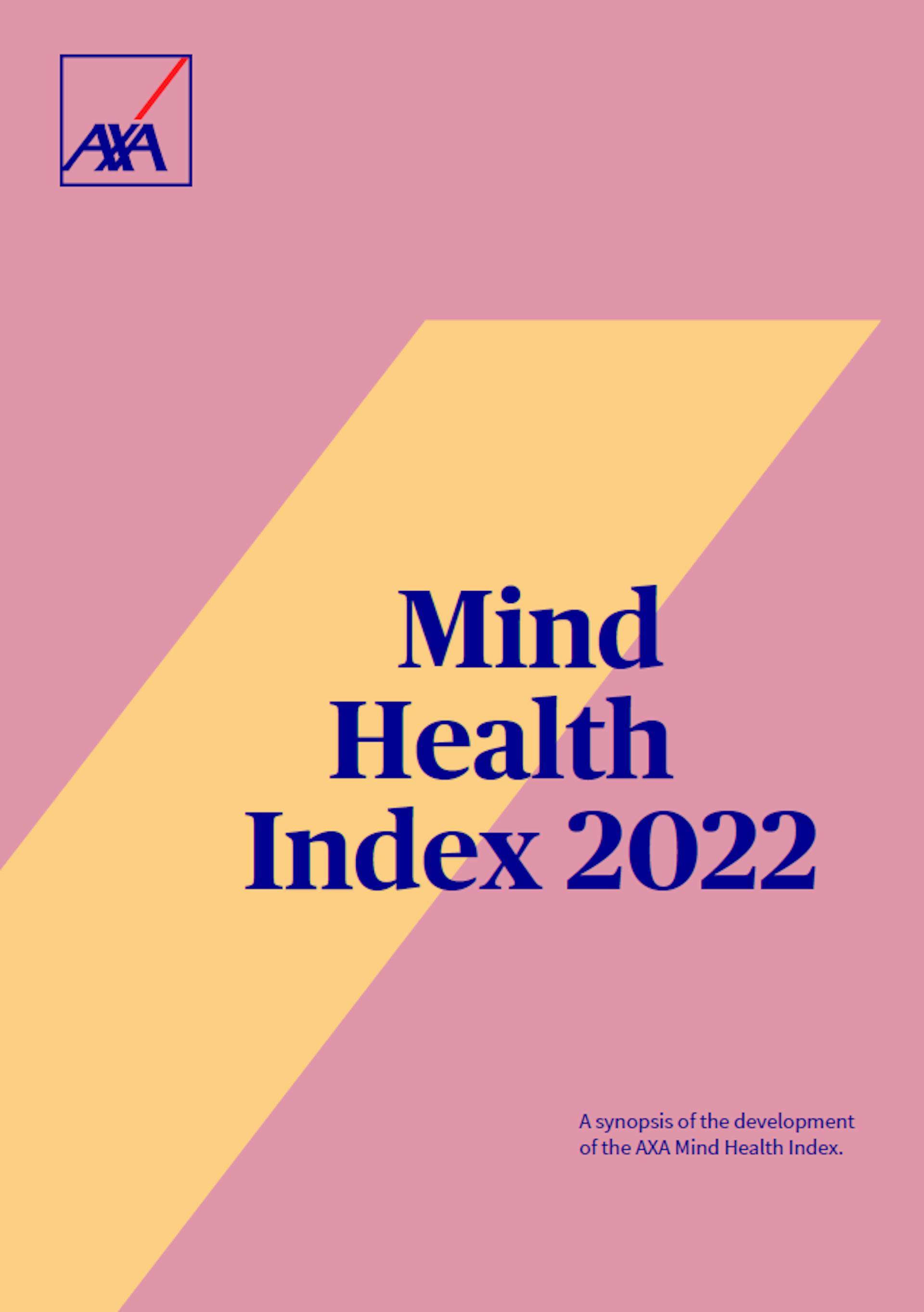
January 25, 2022
The AXA Mind Health Index and Study white paper
To reflect AXA’s expertise in the mental health space and reinforce AXA’s position as a partner to our audiences, AXA has undertaken its second annual research study. Taking learnings from the 2020 activation, the study has evolved to include additional concepts within an updated framework and expanded to include new regions. The survey has also been designed to maintain relevance in the p ost COVID-19 era.
3 minutes

The AXA Mind Health Index and Study white paper
A synopsis of the development of the AXA Mind Health Index
Download the white paperMental health includes our emotional, psychological, and social well-being. It affects how we think, feel, and act. It also helps determine how we handle stress, relate to others, and make choices[1].
In 2020 we conducted a survey that leveraged expert‑inspired pan-European insights. The 2020 survey was shaped by the context of COVID-19 and, as a result, provided concrete levers and coping strategies to help people, employers and society.
To reflect AXA’s expertise in the mental health space and reinforce AXA’s position as a partner to our audiences, AXA has undertaken its second annual research study. Taking learnings from the 2020 activation, the study has evolved to include additional concepts within an updated framework and expanded to include new regions. The survey has also been designed to maintain relevance in the post COVID-19 era.
Mainland China, Japan and Hong Kong joined the 8 European countries taking part in the 2022 Mind Health Study. Mental health is an important conversation in Asia. Recent government statistics in Japan show suicide claimed more lives in October 2020 alone than COVID-19 between January 2020 and October 2020. Suicide is a complex and multifaceted phenomenon[2] and the rise in suicides is a shocking but important statistic. It is estimated that 173 million adults in mainland China have a mental health disorder[3] and 27% of employees in Hong Kong have experienced mental health problems in 2020[4]. Thus, the 2022 Mind Health Study provides a huge opportunity to gain insights and a better understanding of the factors that contribute to the unique mental health profiles and needs of these countries and territories.
The 2022 Mind Health Study also provides an opportunity to gain greater European insights. In 2020, 34% of those surveyed in Europe self-reported struggling with their mental health. This figure was found to increase during the pandemic. The COVID-19 pandemic has changed the way we live and work. Not surprisingly, restrictions put in place to control the spread of the virus have also had an impact on people’s wellbeing[5]. Mental health professionals anticipate the pandemic will have a negative impact on mental health with increasing cases of depression, self-harm and suicide globally[6].
Consequently, it is more important than ever to understand the status of mind health and the factors that contribute to it. We will refer to the term ‘mind health’ throughout this document. The decision to use the term ‘mind health’ over mental health was made partly to avoid the common misconception that mental health only relates to mental ill health. Although the terms are often used interchangeably, mental health and mental illness are not the same thing; but they are also not mutually exclusive. A fundamental difference between mental health and mental illness is that everyone always has some level of mental health, just like physical health. Whereas it is possible to be without mental illness. Ultimately, this means that someone can be mentally healthy with a mental illness and that someone can have poor mental health without a mental illness. Despite poor or ‘languishing’ mind health not being defined as an illness, having poor mind health is associated with emotional distress and psychosocial impairment. At the other end of the spectrum ‘flourishing’ mind health can be defined by the presence of positive feelings and positive functioning in life[7].
The term mind health also allows for the inclusion of a range of societal, social and individual factors in its definition. A systems approach has been applied to help understand the aetiology and maintenance of mind health8. Using this framework, we sought to understand the factors that impact mind health at the individual, social and societal levels. A benefit of taking a multidimensional approach is that it provides a more holistic understanding of mental health and wellbeing, and as a result provides greater insight into how mind health can be supported and improved.
Being mind-healthy: Why good mind health is key to our social and financial wellbeing
This article is part of the AXA Study of Mind Health and Wellbeing in Europe and Asia 2022.
ACCESS THE FULL STUDY


